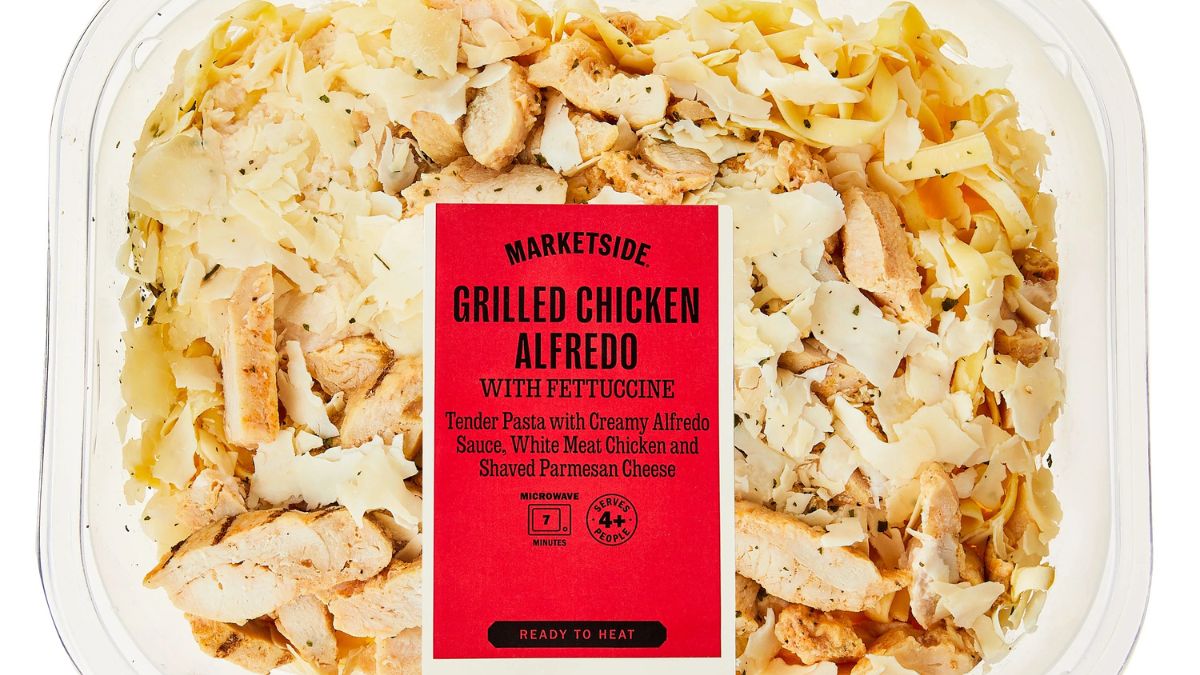
The Food Safety and Inspection Service (FSIS) of the United States Department of Agriculture (USDA) has announced a recall of several FreshRealm ready-to-eat meals, which may be contaminated with a bacterium that poses a deadly risk to consumers. The product was sold at Walmart and Kroger.
Why was FreshRealm’s ready-to-eat food recalled?
According to the USDA, FreshRealm’s ready-to-eat meal packages were found to be contaminated with listeria. The outbreak has already sickened 17 people, 16 of whom have been hospitalized. Additionally, there have been three reported deaths and the loss of one fetus associated with the outbreak.
Which FreshRealm ready-to-eat meals were recalled?
The following products are affected:
- Marketside Grilled Chicken Alfredo with Fettuccine: 940 g tray containing pasta with Alfredo sauce, chicken, and Parmesan cheese. The package has a “use by” date of June 27, 2025, or earlier.
- Marketside Grilled Chicken Alfredo with Fettuccine: 355 g tray containing pasta with Alfredo sauce, chicken, broccoli, and Parmesan cheese. The package has a “use by” date of June 26, 2025, or earlier.
- Home Chef Heat & Eat Chicken Fettuccine Alfredo: 12.5 oz tray containing pasta, grilled chicken, and Parmesan cheese. The package has a “use by” date of June 19, 2025, or earlier.
ALSO READ Three Cheerios cereals are being discontinued! Find out which ones
Where were the recalled FreshRealm meals sold?
The affected products were sold nationwide at Kroger and Walmart stores. The states where listeria cases have been reported include:
- Florida (1)
- Illinois (1)
- Indiana (1)
- Louisiana (1)
- Michigan (2)
- Minnesota (1)
- Missouri (1)
- North Carolina (1)
- Nevada (1)
- Ohio (1)
- South Carolina (1)
- Texas (3)
- Virginia (1)
What should I do if I bought FreshRealm’s ready-to-eat meals?
The USDA urges anyone who purchased the affected products and froze them to dispose of them immediately. For more information, consumers can contact FreshRealm’s customer service at 888-244-1562.
What is listeria?
Listeria monocytogenes is a bacterium responsible for an infection that can be very serious or even fatal. This condition particularly affects young children, the elderly, pregnant women, and those with weakened immune systems.
Symptoms of listeria
Listeria infection may include the following symptoms, typically appearing within a month:
- Fever
- Muscle aches
- Fatigue
- Headache
- Stiff neck
- Loss of balance
- Seizures
- Confusion
In pregnant women, it can lead to miscarriages or stillbirth.
ALSO READ What is The Waterfront, the new series that’s causing a sensation on Netflix, about?
How dangerous is listeria?
Listeria infection can affect various organs, including the brain, spinal cord membranes, and the circulatory system.
How is listeria transmitted?
The bacterium are widespread in the environment, present in both water and soil. Infected animals can also act as carriers and sources of transmission.
Listeria can be transmitted in the following ways:
- Consumption of unpasteurized milk or contaminated vegetables.
- Transmission from mother to fetus in the womb or directly to the fetus during childbirth.
- Through sexual contact.
- Through inhalation of the organism.
What foods cause listeria?
- Dairy products made with unpasteurized milk
- Ready-to-eat deli meats and processed meats (sausages, hams, and pâtés)
- Smoked fish, such as salmon
How to prevent listeria?
Since this microorganism is widespread in the environment, the most effective protection is to follow basic hygiene practices. This includes consuming only pasteurized dairy products, ensuring meats are well cooked, and properly washing hands before preparing food.
It is also recommended that pregnant women and individuals with weakened immune systems avoid consuming these foods, along with soft cheeses and raw deli meats.









